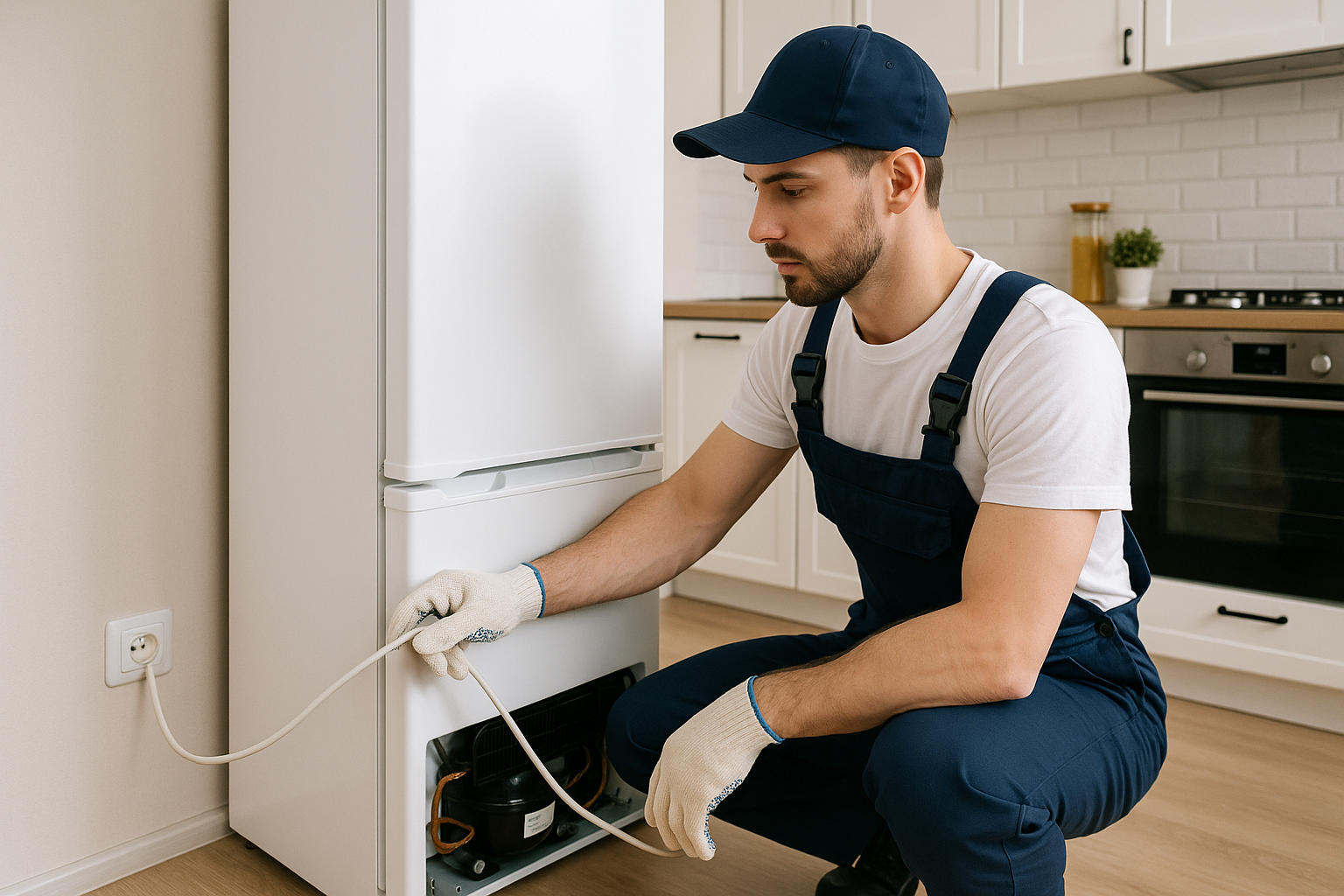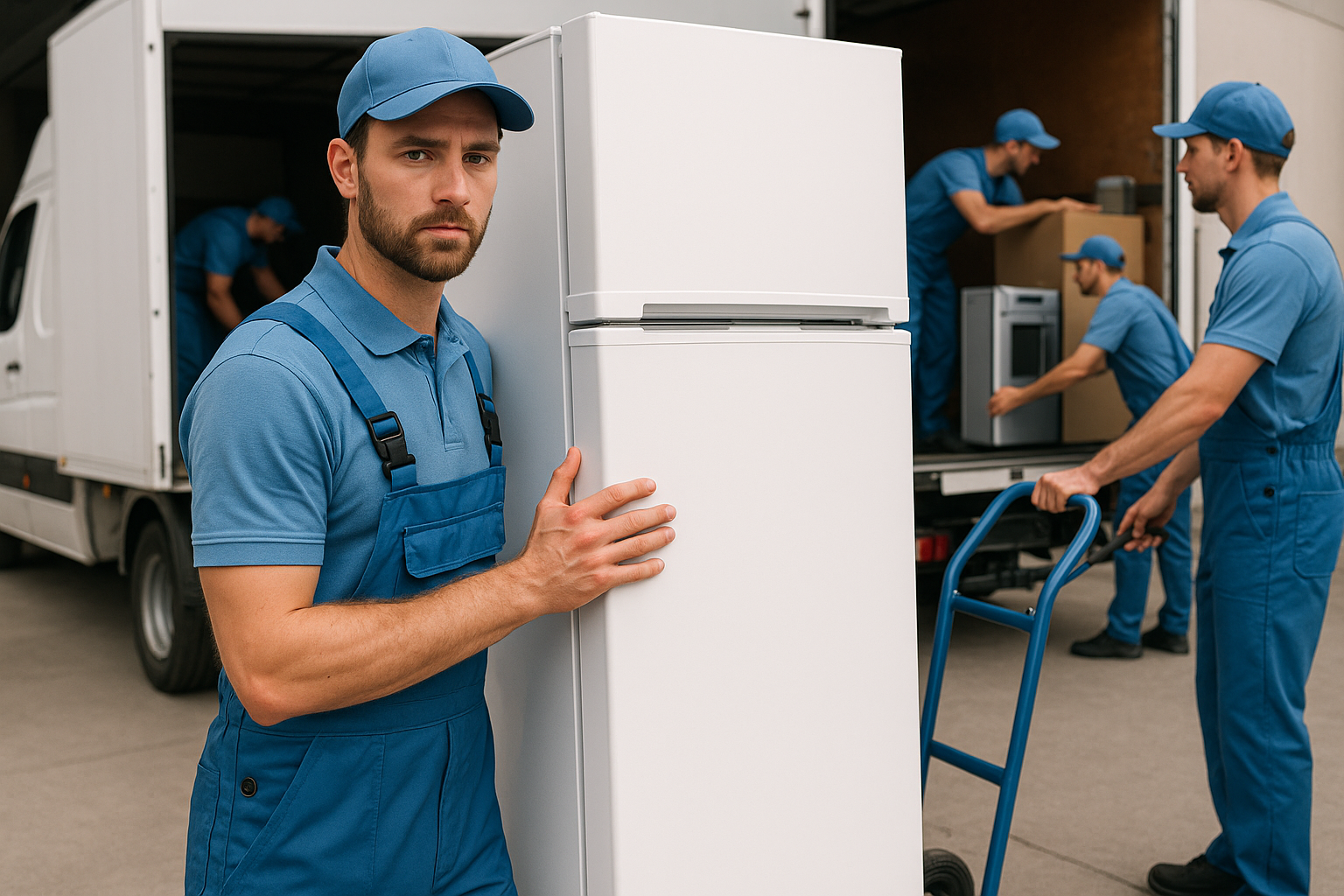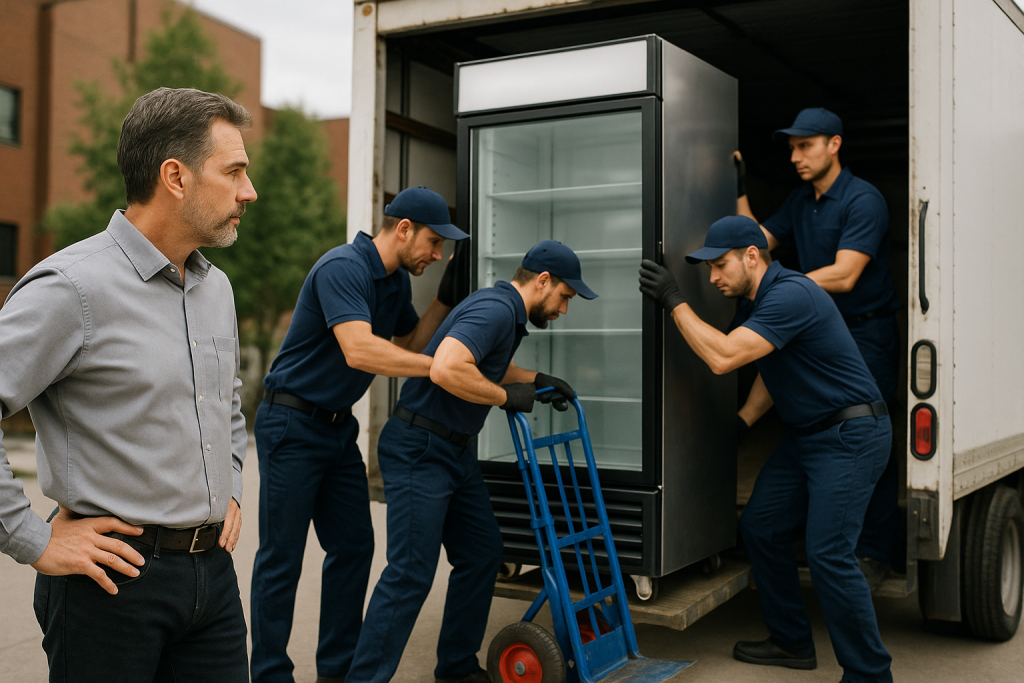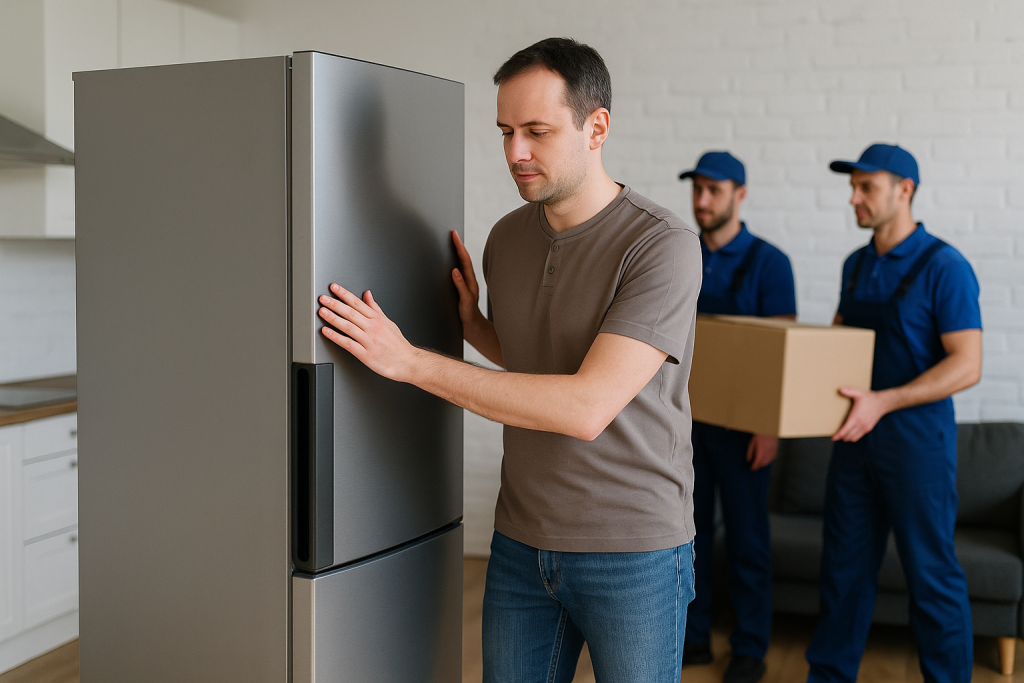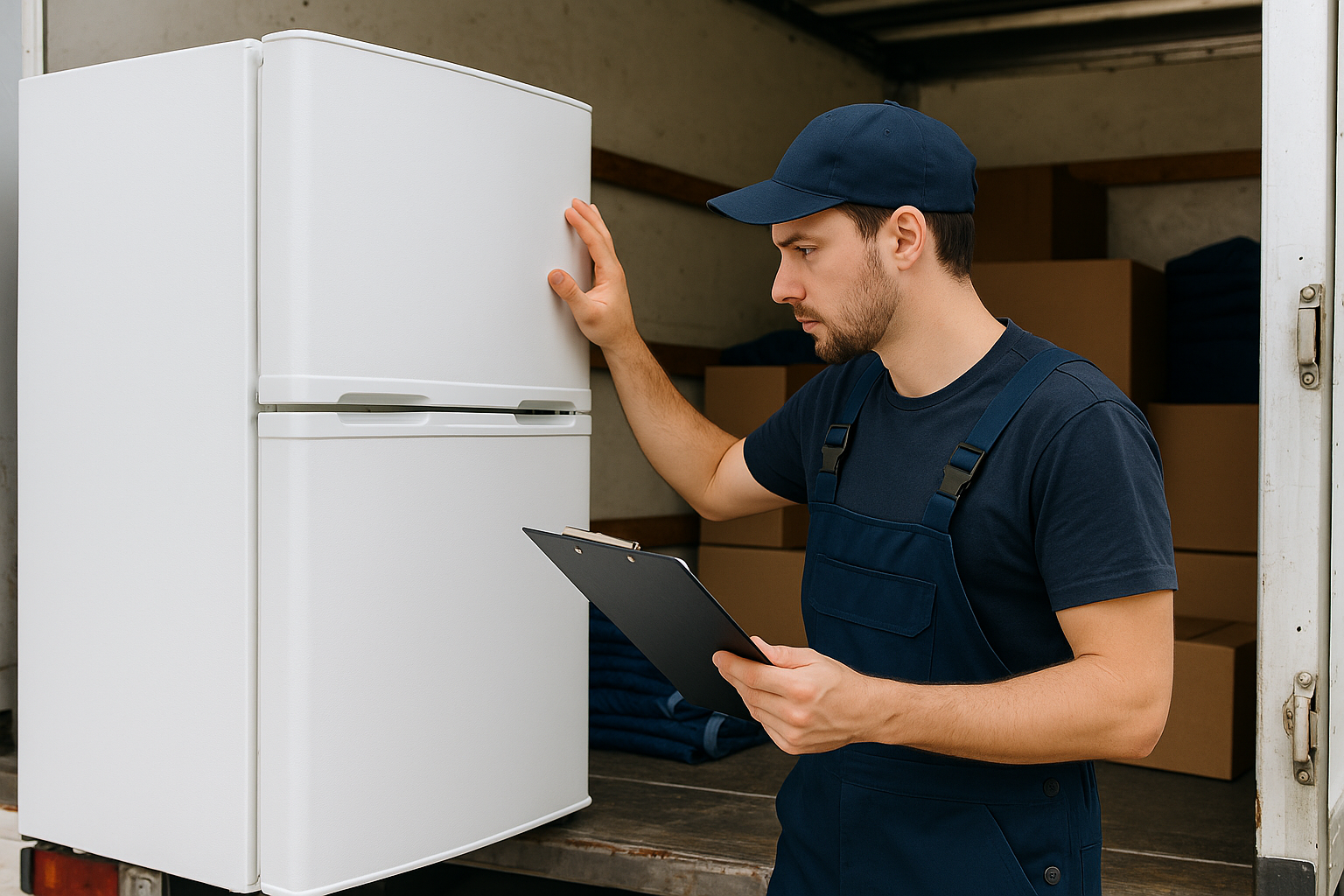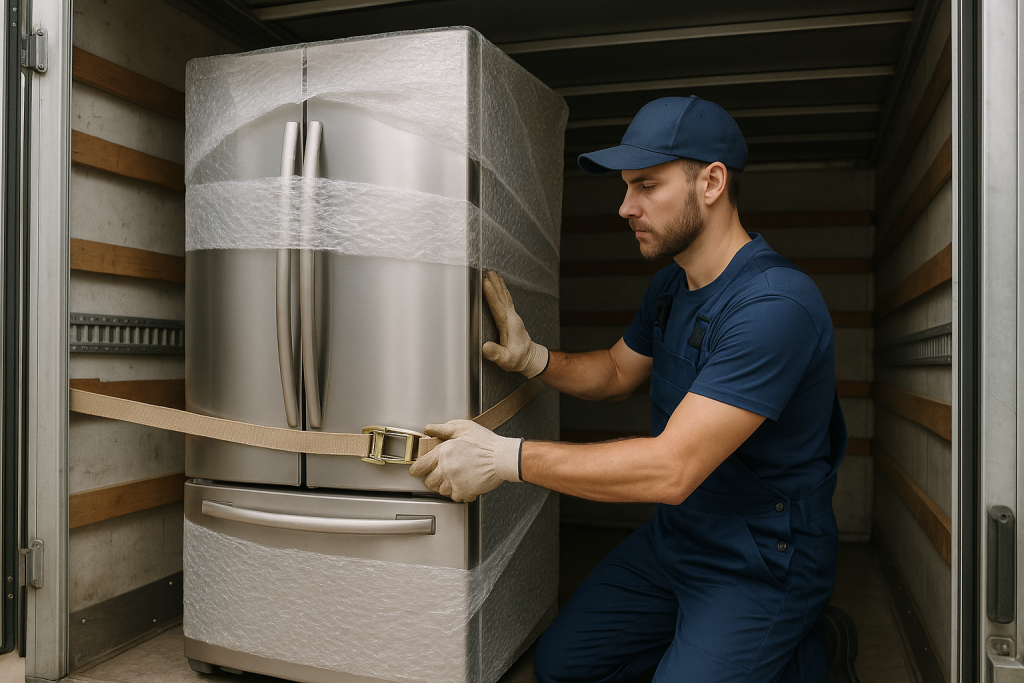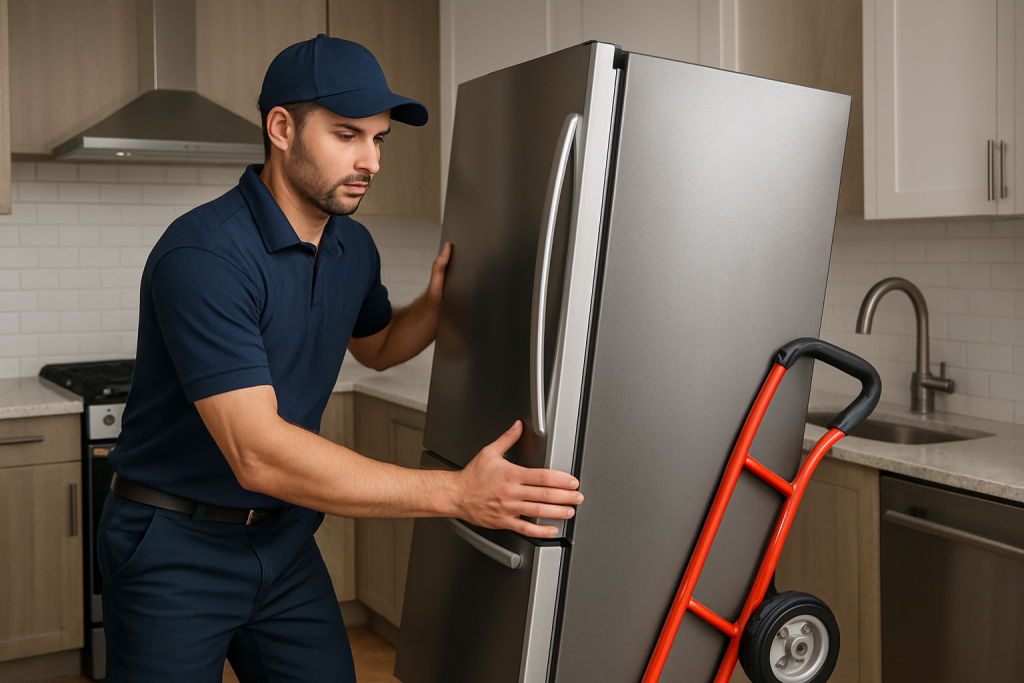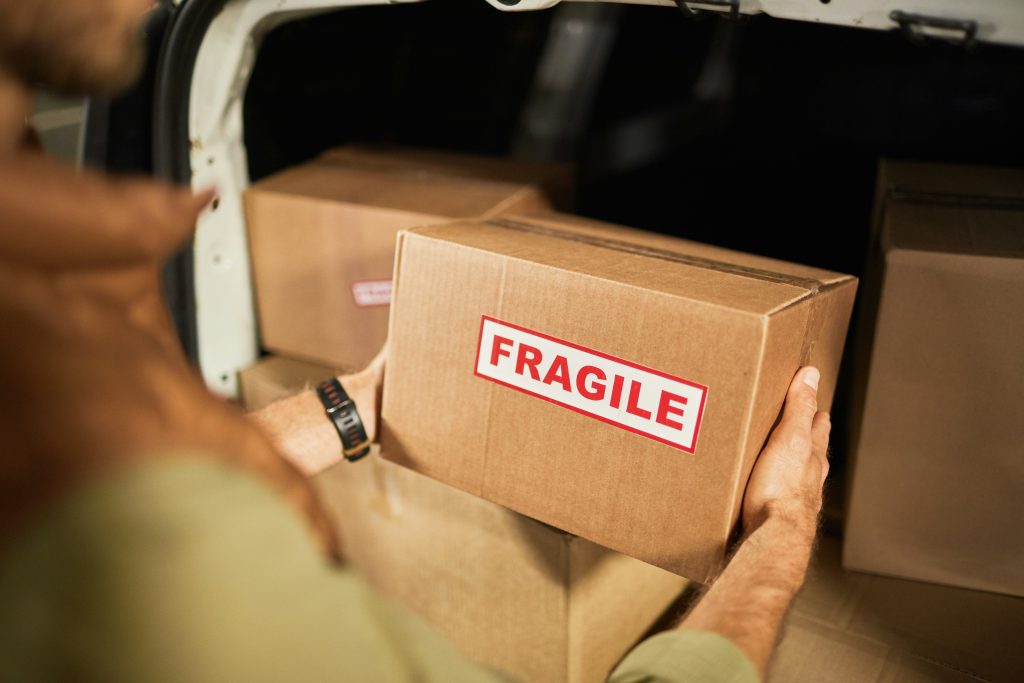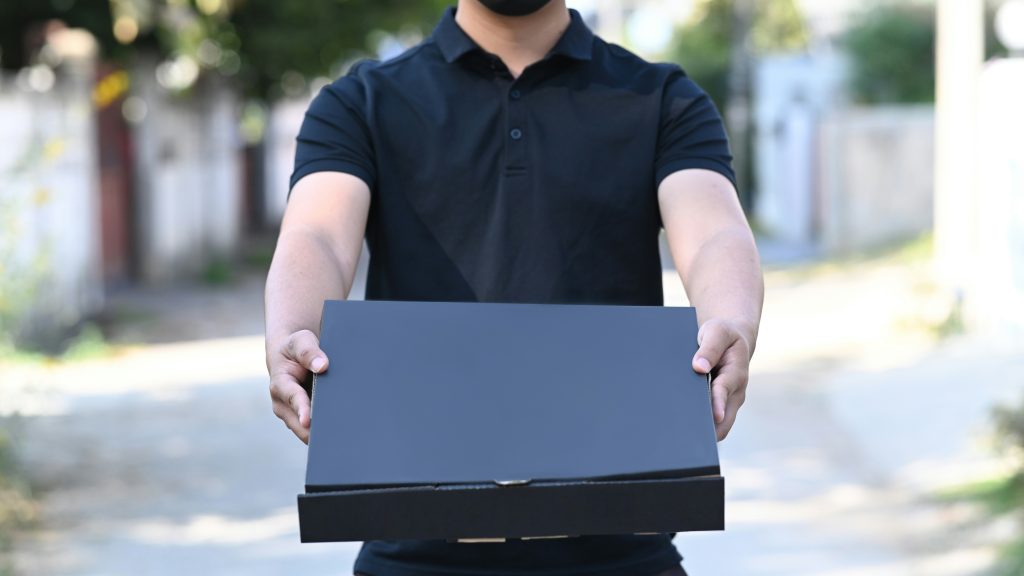Moving heavy appliances like refrigerators, dishwashers, and stoves can be one of the most challenging aspects of any move. Whether you’re relocating to a new home or moving your business to a different location, these large, bulky items require specialized attention. Appliance movers make the process easier by providing the necessary tools, expertise, and experience to ensure a smooth and safe relocation.
Why Choose Reliable Appliance Movers?
Moving large, heavy appliances requires more than just strength. Without the right tools and knowledge, moving these items can lead to accidents, injuries, and costly damages. Appliance movers specialize in safely transporting heavy appliances, ensuring that your items are moved with minimal hassle and no damage.
Here’s why hiring reliable professionals is the best choice:
- Safety: Experts are trained to lift, carry, and move heavy appliances safely without risk to themselves or your property.
- Efficiency: Professional movers can handle the job quickly, saving you time and energy.
- Protection: Your appliances will be properly wrapped and secured to avoid scratches, dents, and other damage during transport.
Finding Heavy Appliance Movers Near Me
When searching for heavy appliance movers near me, look for a company that offers experience with a variety of appliances and that has the right equipment. Whether you’re moving a washer, fridge, or oven, a professional moving service will have dollies, straps, and blankets to protect your appliances and prevent them from getting damaged during transport.
Commercial Appliance Movers for Business Relocations
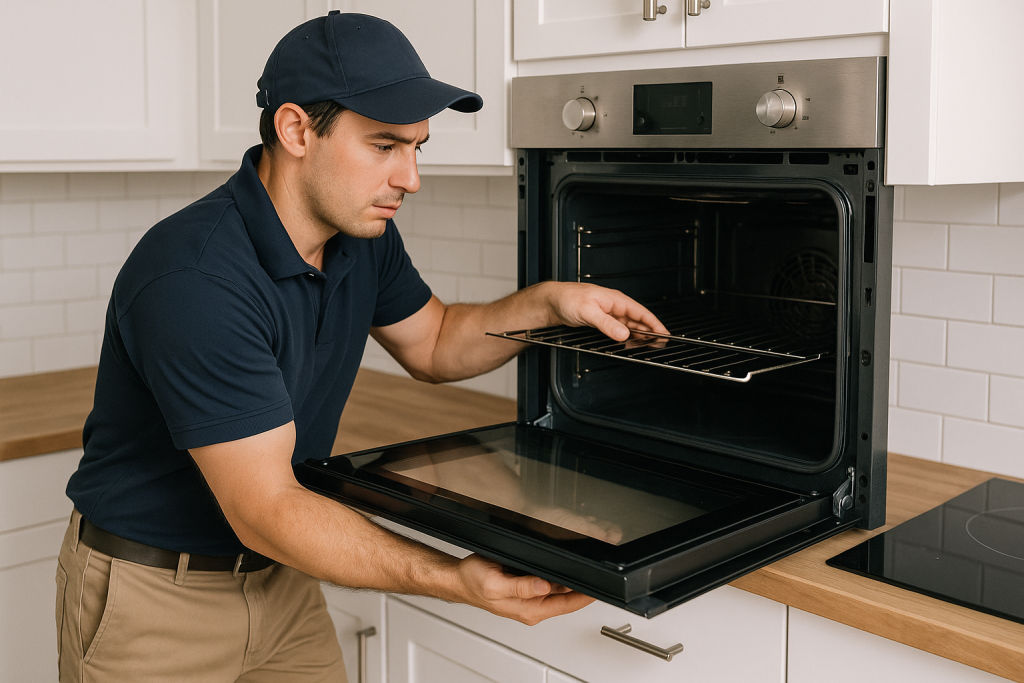
For businesses, especially those in the food service industry, commercial appliance movers are essential. Relocating large kitchen equipment such as ovens, dishwashers, freezers, and refrigerators requires specific expertise. Professional movers who specialize in commercial appliances can handle the complex process, ensuring that your equipment is moved safely and your business experiences minimal downtime.
How to Choose the Right Appliance Moving Company
When hiring an appliance moving company, it’s important to select one that offers reliable services and has a proven track record. Here’s what to look for:
- Experience: Choose a company with experience moving both residential and commercial appliances.
- Insurance: Make sure the company offers insurance to protect your appliances during the move.
- Full-Service Moving: Ensure the company offers disassembly, packing, loading, unloading, and reinstallation services.
- Positive Reviews: Look for companies with good customer reviews and ratings to ensure they have a reputation for providing quality service.
Benefits of Using an Appliance Moving Service
An appliance moving service simplifies the moving process by handling all the logistics for you. These services typically offer:
- Packing and protection: Professionals wrap your appliances in protective blankets to prevent scratches and damage.
- Loading and unloading: Movers carefully load and unload your appliances into and out of the truck.
- Reinstallation: Many appliance moving services offer reinstallation, ensuring your appliances are set up and ready to use in your new space.
Specialized Care for Kitchen Appliances Movers
Moving kitchen appliances requires special attention. Many kitchen appliances, like built-in ovens and refrigerators, require professional knowledge to disconnect and relocate. Kitchen appliance movers know how to handle both built-in and freestanding appliances, ensuring they are safely removed, transported, and reinstalled without damage.
Preparing Your Appliances for a Move
To ensure a smooth move, there are some key steps to follow when preparing your appliances:
- Clean and empty your appliances, especially refrigerators and freezers, to prevent spills and odors during transport.
- Remove trays, shelves, and loose parts to avoid damage.
- Unplug and disconnect gas, water, or electrical connections before the movers arrive.
- Measure doorways to ensure your appliances fit through them.
Why You Shouldn’t Attempt to Move Appliances Yourself
Although moving your appliances yourself may seem like a way to save money, it can lead to accidents and damage. Heavy items are difficult to move, and without the proper equipment, you may end up damaging your appliances or injuring yourself. Appliance movers are trained to move large appliances safely, ensuring your items are transported without any issues.
FAQs
Q1: How much do appliance movers charge?
The cost of appliance moving depends on factors such as the size of the appliances, the distance, and the complexity of the move. Typically, local moves are more affordable than long-distance ones.
Q2: Do appliance movers disassemble and reinstall appliances?
Many appliance moving services offer disassembly and reinstallation. Be sure to ask about these services when booking your move.
Q3: How should I prepare my refrigerator for moving?
It’s important to clean and defrost your refrigerator 24 to 48 hours before the move. Remove any shelves and secure the doors to prevent damage during transport.
Q4: Are appliance movers insured?
Most professional moving companies offer insurance to cover potential damages. Always ask about their insurance policy before booking.
Q5: Can kitchen appliances movers install my appliances?
Yes, many kitchen appliance movers offer installation services to ensure your appliances are set up and ready to use in your new location.
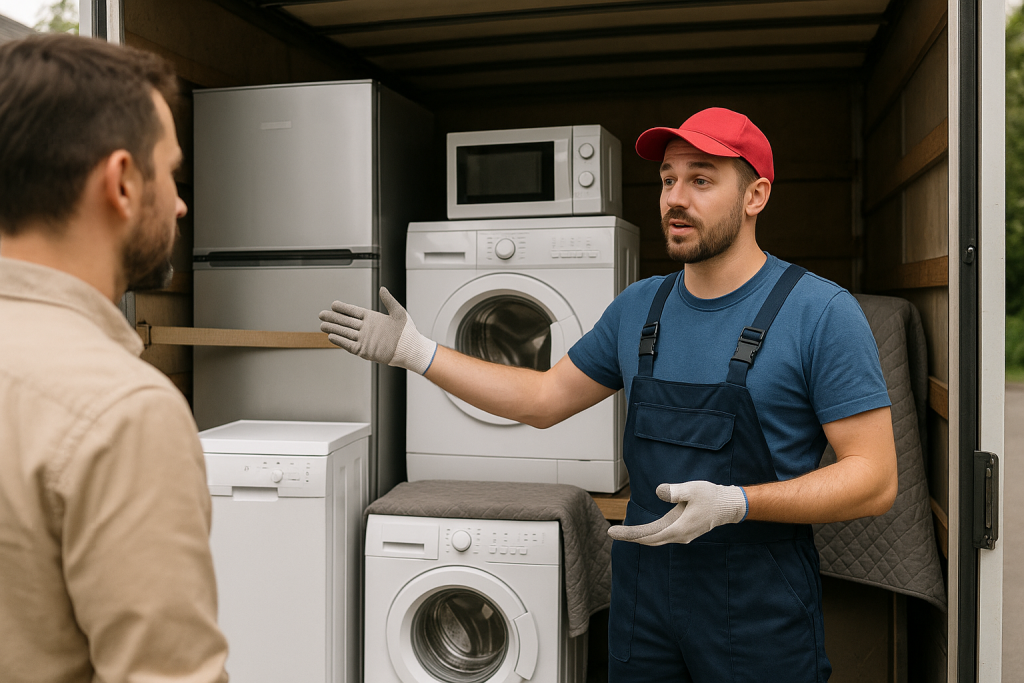
Hiring appliance movers ensures a safe, stress-free relocation of your large appliances. Whether you’re moving to a new home or relocating your business, these professionals have the expertise, tools, and experience to handle the job. Save yourself time, effort, and the risk of injury or damage by trusting experts to move your appliances for you.
BuzzMoving connects you with a reliable nationwide network of movers, providing excellent service from start to finish. Request your free quote today for a hassle-free, smooth move.
